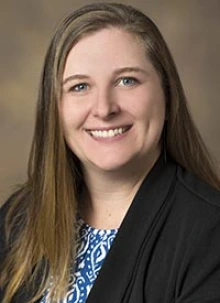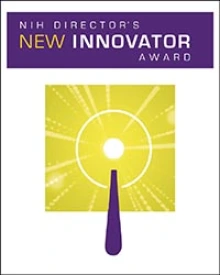NIH New Innovator Award to Fund UArizona Health Sciences Research on Opioid Addiction and Relapse in Postpartum Women
The $2.3 million National Institutes of Health grant will enable Dr. Alicia Allen to explore how women’s hormones influence postpartum opioid relapse and if they may be used as a preventative strategy.
TUCSON, Ariz. – When most people think of opioid addiction, they typically do not think of pregnant women. Unfortunately, however, the prevalence of opioid addiction during pregnancy has increased nearly 500% during the past 15 years.

Alicia M. Allen, PhD, MPH
In response, Alicia Allen, PhD, MPH, an assistant professor, UArizona Department of Family and Community Medicine, affiliated with the Comprehensive Pain and Addiction Center, seeks to understand the relationship between postpartum hormones and opioid relapse to further support women in their recovery from opioid addiction.
Dr. Allen is a recent recipient of a prestigious five-year, $2.3 million National Institutes of Health (NIH) New Innovator Award. The award will fund her study, “Hormonal Response to Infant Caregiving: A Novel Strategy to Break the Opioid Relapse Cycle during the Postpartum Period.”
“My study will explore how women’s hormones influence postpartum opioid relapse and whether these hormones could be used as a preventative-care strategy,” Dr. Allen said. “While pregnancy presents a strong motivation for seeking and complying with treatment for addiction, the postpartum period is associated with a nearly 80% risk for relapse within six months of delivery.”
Dr. Allen explained that relapse leads to a wide range of negative outcomes for the infant, mother and the entire family, such as physical, social and emotional consequences. These include fatal and non-fatal overdose episodes, increased risk of substance-use disorders in children, foster-care placement, poor academic achievement, anxiety and depression. Unfortunately, little research is available on how to prevent opioid relapse in postpartum women.

Click to view news item on 85 NIH New Innovator Award winners – including Dr. Alicia Allen – and $251 million in related funding.
“Our goal is to identify which hormones may be protective against relapse to opioids during the postpartum period,” Dr. Allen said.
She and her team will be among the first to measure hormones such as progesterone and oxytocin during the first few months after childbirth in women with and without opioid addiction.
“We believe this will lead to a hormonally based intervention as an element of a comprehensive approach to prevent postpartum opioid relapse,” Dr. Allen said. “I hope this research will expand to other substances of abuse—such as cannabis—and also may be applied to other postpartum health issues, such as depression and anxiety.”
“Dr. Allen is an exceptionally talented and promising researcher,” said Myra Muramoto, MD, MPH, professor and chair, UArizona Department of Family and Community Medicine. “Her novel research into the hormonal connections to opioid addiction and relapse in postpartum women is very timely and critically important to reduce the impact of the opioid epidemic on women, their families and the community.”
“We are very lucky to have Dr. Allen, a talented and passionate researcher, as a member of our Comprehensive Pain and Addiction Center,” said Todd Vanderah, PhD, professor and head of the UArizona Department of Pharmacology and director of the Comprehensive Pain and Addiction Center (CPAC), at the UArizona Health Sciences. Launched in the past year as part of the UArizona Health Sciences Strategic Plan, CPAC has raised more than $5 million in federal grants and continues to grow in areas of preclinical and clinical research, as well as community outreach, workforce development and education.
The New Innovator Award is part of the NIH High-Risk, High-Reward Research (HRHR) Program that funds grants for highly innovative and unusually impactful biomedical or behavioral research proposed by extraordinarily creative scientists.
This research is supported by the National Institutes of Health HRHR Program under Award No. 1DP2HD105541-01.
# # #
NOTE: Photo available here – https://arizona.box.com/s/45msd09sm7bfhcmeieje2ixdamsqohgl.
About the University of Arizona Department of Family and Community Medicine
The Department of Family and Community Medicine at the UArizona College of Medicine – Tucson is one of the top-ranking family medicine programs in the country. The department is known for outstanding pre- and post-doctoral education, groundbreaking research and innovative community outreach programs designed to improve the health of individuals, families and communities in the region and beyond. The department places strong emphasis on research, particularly in the fields of tobacco cessation, substance abuse, obesity and related diseases, cancer survivorship, behavioral health and disabilities, and Native American and Latino health. For more information: https://www.fcm.arizona.edu (Follow us: Facebook | YouTube).
About the University of Arizona College of Medicine – Tucson
The University of Arizona College of Medicine – Tucson is shaping the future of medicine through state-of-the-art medical education programs, groundbreaking research and advancements in patient care in Arizona and beyond. Founded in 1967, the college boasts more than 50 years of innovation, ranking among the top medical schools in the nation for research and primary care. Through the university's partnership with Banner Health, one of the largest nonprofit health care systems in the country, the college is leading the way in academic medicine. For more information, visit medicine.arizona.edu (Follow us: Facebook | Twitter | Instagram | LinkedIn).
About the University of Arizona Health Sciences
The University of Arizona Health Sciences is the statewide leader in biomedical research and health professions training. UArizona Health Sciences includes the Colleges of Medicine (Tucson and Phoenix), Nursing, Pharmacy, and the Mel and Enid Zuckerman College of Public Health, with main campus locations in Tucson and the Phoenix Biomedical Campus in downtown Phoenix. From these vantage points, Health Sciences reaches across the state of Arizona, the greater Southwest and around the world to provide next-generation education, research and outreach. A major economic engine, Health Sciences employs nearly 5,000 people, has approximately 4,000 students and 900 faculty members, and garners $200 million in research grants and contracts annually. For more information: uahs.arizona.edu (Follow us: Facebook | Twitter | YouTube | LinkedIn | Instagram).

